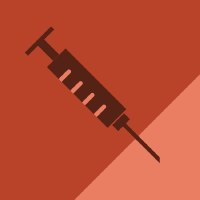Topic Menu
► Topic MenuTopic Editors



Mass Vaccination Campaigns: From Post-authorization Benefit-Risk Assessment to Public Health Impact
Topic Information
Dear Colleagues,
Communicable diseases have a direct impact on social, economic, health, and healthcare systems. Vaccination campaigns represent one of the most effective and cost-effective public health measures to protect the general population. In recent years, several vaccines have been developed to protect against the new SARS-CoV-2 virus and its variants, as well as a growing number of pathogens such as HPV, monkeypox virus, and others. The implementation of new vaccines raises concerns regarding their effectiveness and safety profile, especially when they should be co-administered with drugs and other vaccines. In this context, if the co-administration practice facilitates the introduction of new vaccines into immunization programs contributing to improve coverage rates, this can also lead to interaction between products and consequent alteration in their health outcomes. In the post-COVID-19 era, vaccine hesitancy in the general population might be high due to stigma, inappropriate communication by mass media, and concerns around vaccine safety. This calls for studies to appropriately and routinely assess the safety and effectives of both old and new vaccines when administered to the general population. In this issue, we would like to discuss the safety of vaccines, with special emphasis on new ones, as well as the methodological aspects that should be considered in safety vaccine study design. We would like to invite submissions on this topic to collect the latest evidence on vaccine safety. The topics of interest for publication include but are not limited to the following:
- SARS-CoV-2 and non-SARS-CoV-2 vaccines’ safety, effectiveness, and cost-effectiveness using real-world evidence;
- Vaccines safety, post-marketing surveillance, and pharmacovigilance;
- Vaccine safety, effectiveness, and cost-effectiveness: novel methodological approaches and study designs;
- Vaccine safety and effectiveness in special populations (i.e., children, elders, pregnant women, breastfeeding, and with specific comorbidity);
- Delivering effective mass vaccination campaigns: global impact assessment and novel methods.
Dr. Giampiero Mazzaglia
Dr. Lorenzo Giovanni Mantovani
Dr. Ippazio Cosimo Antonazzo
Topic Editors
Keywords
- vaccine safety and effectiveness
- vaccine cost-effectiveness
- SARS-CoV-2 vaccines
- public health impact
- pharmacovigilance
- real-world evidence
- benefit-risk assessment
- vaccination campaigns
Participating Journals
| Journal Name | Impact Factor | CiteScore | Launched Year | First Decision (median) | APC |
|---|---|---|---|---|---|

Journal of Clinical Medicine
|
3.9 | 5.4 | 2012 | 17.9 Days | CHF 2600 |

Pharmaceuticals
|
4.6 | 4.7 | 2004 | 14.6 Days | CHF 2900 |

Pharmacoepidemiology
|
- | - | 2022 | 34.2 Days | CHF 1000 |

Pharmacy
|
2.2 | - | 2013 | 24.6 Days | CHF 1800 |

Vaccines
|
7.8 | 7.0 | 2013 | 19.2 Days | CHF 2700 |

Healthcare
|
2.8 | 2.7 | 2013 | 19.5 Days | CHF 2700 |

MDPI Topics is cooperating with Preprints.org and has built a direct connection between MDPI journals and Preprints.org. Authors are encouraged to enjoy the benefits by posting a preprint at Preprints.org prior to publication:
- Immediately share your ideas ahead of publication and establish your research priority;
- Protect your idea from being stolen with this time-stamped preprint article;
- Enhance the exposure and impact of your research;
- Receive feedback from your peers in advance;
- Have it indexed in Web of Science (Preprint Citation Index), Google Scholar, Crossref, SHARE, PrePubMed, Scilit and Europe PMC.

